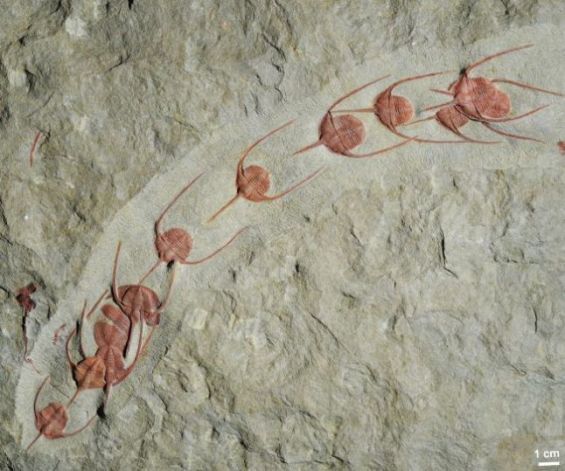Queueing is not a new behavior to our planet and does not occur only among humans. This conclusion was taken from a recent discovery that took place in Morocco, suggesting that more than 400 million years ago, animals knew how to form orderly lines.
Scientists from Switzerland, France and Morocco studied fossils found in Morocco that show a group of blind trilobites, ancient marine animals, on the surface of a rock slab, facing the same direction and forming a line, American press agency Associated Press (AP) reports.
Hence, the study, published Thursday in the journal Scientific Reports, reveals that these arthropods queued in an «intentional» way, while swimming in a Morocco prehistoric sea floor, 480 years ago.
«Given the scale of the patterns seen, this consistent linearity and directionality is unlikely to be the result of passive transportation or accumulation by currents», the scientists behind this discovery wrote.
A collective behavior
Although they were blind trilobites, the animals that once lived in Morocco, developed a «collective behavior» that was «triggered by hydrodynamic cues in which mechanical stimulation detected by motion and touch sensors», the scientists found.
Their queues «may have played a major role, or from a possible seasonal reproduction behavior leading to the migration of sexually mature conspecifics to spawning grounds, possibly driven by chemical attraction», the study added.

The same behavior was noticed among modern-day members of the extended family of arthropods, co-author of the study Jean Vannier told AP, referring to caterpillars, ants and lobsters.
In addition to their findings, the discovery allowed these scientists to define queuing as an «evolutionary advantage» in the prehistoric era. «Living and moving in groups seems to have rapidly represented an evolutionary advantage among ancient animals», Vannier said.
The researcher at the University of Lyon indicates that the «collective behavior like forming lines emerged shortly after animals first developed sophisticated nervous systems and sensory organs».
The fossils from the Fezouata Shale of Morocco, near the city of Zagora, prove that making a line is one of the many collective behaviors prehistoric animals may have developed.





 chargement...
chargement...













